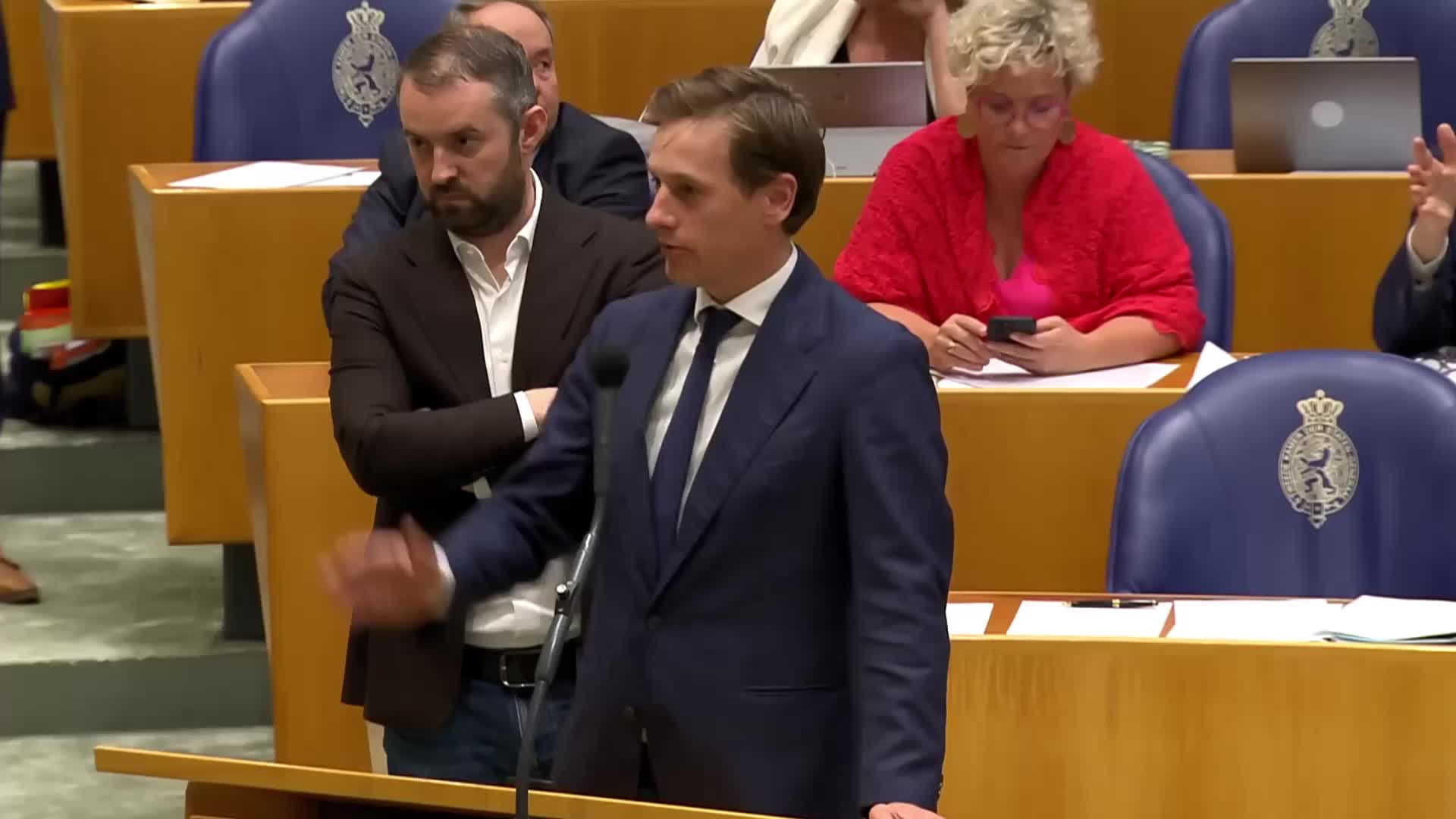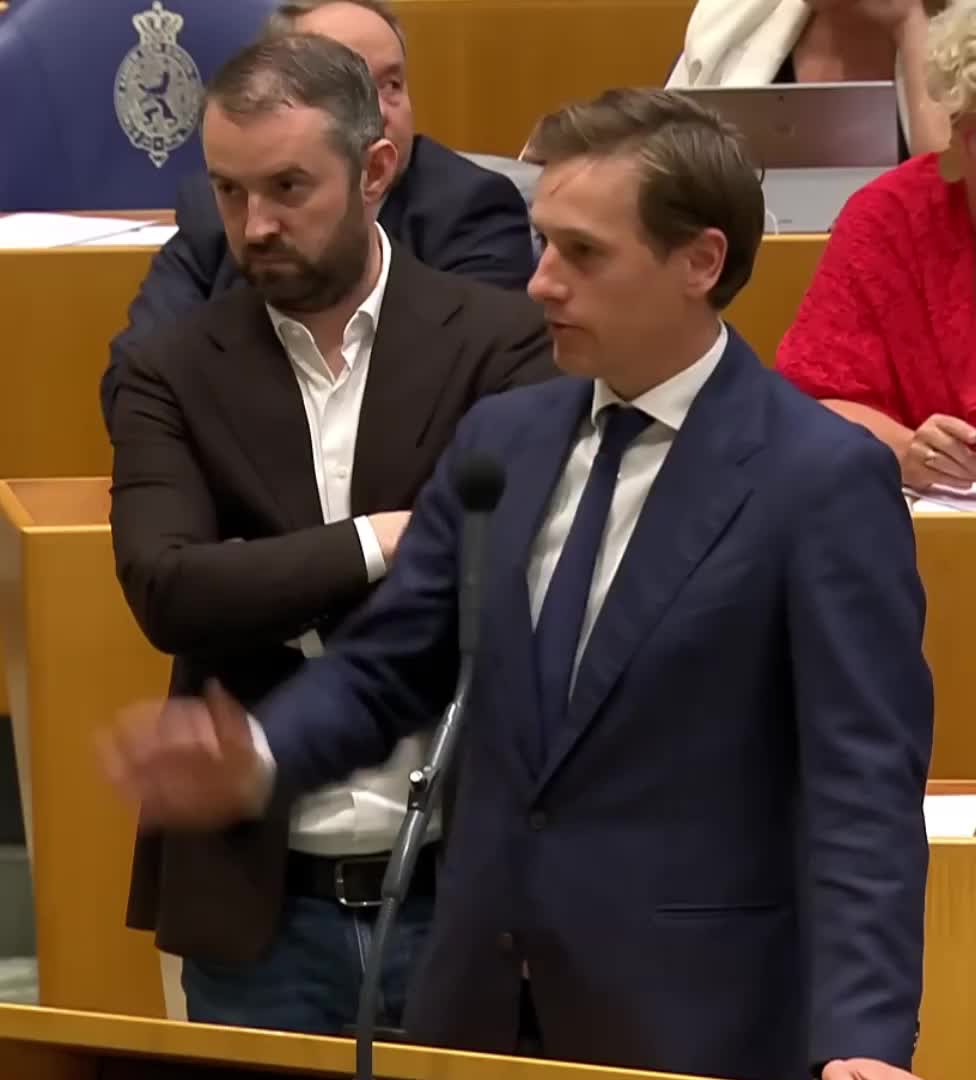- Dealmaking professionals are increasingly worried about the divisive political climate in the Netherlands, which has led to stricter regulations and uncertainty in foreign direct investments.
- The ongoing war in Ukraine remains a significant concern, with experts warning that further escalation could destabilize the European M&A climate.
The cumulative effect of geopolitical tensions, including conflicts in the Middle East, adds to the overall uncertainty facing investors.
The M&A community in the Benelux region is expressing significant discontent with the current Dutch government, citing political uncertainty and its impact on investment decisions.
By Jeppe Kleijngeld
At the time of writing this magazine, the U.S. presidential elections had yet to take place, so we could not include the results. The risk of Trump being re-elected and potentially initiating a new trade war ranked highly among dealmakers in the Benelux region, with 17 percent of respondents citing it as the biggest macroeconomic and geopolitical risk. In second place was the further escalation of the conflict between Russia and Ukraine. However, perhaps surprisingly, the greatest risk to the M&A market in the Benelux is the national politics that create division and uncertainty in policy.
What will be the biggest challenges in M&A transactions the coming 12 months?
This is evident from the M&A Trend Survey Benelux 2024 / 2025 by M&A and Ansarada. For this research, 175 Dutch and Belgian M&A professionals took part in an online survey and the M&A editors interviewed 35 dealmakers live.
1. National politics creates divisions and unclear policies
Kuif Klein Wassink and Ico Jalink, M&A Partners at Dentons, express deep concerns about political divisions and regulatory uncertainty. “Uncertainty due to political divisions and unclear policies is increasing”, they state, noting that this has led to stricter Foreign Direct Investment (FDI) regulations in various countries.
Marc Habermehl, Partner at Stibbe, agrees: “I would point to the European M&A climate in general, but specifically in the Netherlands. The uncertainty surrounding government policy could have a significant impact on long-term investments. We’ve been hearing this for a few years now. It's becoming more common for parties to look for ways out of the Dutch market due to unclear government policy, especially regarding fiscal and regulatory matters. Businesses need to know that the investments they make today will still hold value in the coming years. In the Netherlands, changing policies could risk undermining those investments. In other countries, like the U.S., there's a consistently business-friendly climate, regardless of political leadership. Companies are increasingly turning to the U.S. because they know they’ll be welcomed and can operate with more certainty.”
Marcel Vlaar, Partner at RSM Netherlands, puts national politics at the top of the list of challenges, criticizing the government for reversing commitments made to industries like agriculture and electrification. He states: “I find it incomprehensible what is happening under this cabinet. Everything is reversed after previous investments. Think of agriculture and electrification. And consider the planned higher VAT on books, newspapers and sports activities. Not only incomprehensible, but also unbelievable.”
Jan-Hendrik Horsmeier from Clifford Chance highlights the detrimental effect of political shifts on industries, such as the solar panel sector, which has been impacted by changing regulations.
“I find it incomprehensible what is happening under this cabinet. Everything is reversed after previous investments. Not only incomprehensible, but also unbelievable.”

Marcel Vlaar, RSM Netherlands
2. Escalating war in Ukraine
The ongoing conflict between Russia and Ukraine remains a significant concern for dealmakers. Philippe Craninx, Managing Partner at Moore Corporate Finance, identifies this war as a major risk factor.
“If the conflict escalates, particularly with the potential for nuclear weapons, the situation could drastically change”, warns Marco Gulpers, Head of Corporate Finance M&A Netherlands at ING. He stresses that geopolitical developments can adversely affect the European M&A climate, especially when financing large transactions.
Hans Swinnen, Partner at 3d-investors, points out the broader implications of de-globalization spurred by the war. “The tensions between the U.S., China, and Europe are significant”, he states, warning that these geopolitical divisions could disrupt the previously stable trade environment.
3. Potential trade wars
At this point, the outcome of the intensely contested U.S. elections is likely known, along with any ongoing disputes regarding the final results. Among the concerns raised by the dealmakers we interviewed was the potential re-election of former President Trump and the possibility of reinstating trade barriers, which remains a significant worry for the M&A community.
Gülsüm Aslan and Rob Faasen, Directors at Risk Capital Advisors, note that such actions could spark a new trade war, impacting the M&A climate through increased political tensions. Sergio Herrera, Managing Director of the M&A team at Rabobank, emphasizes that geopolitical factors are critical to the market’s future. Franck Marra, Partner at Pontex Investment Partners, warns that trade wars can disrupt entire sectors, leading to significant impacts on M&A activities. “If a certain sector is hit hard by quotas or taxes, it can disrupt that sector enormously”, he explains.
“If a certain sector is hit hard by quotas or taxes, it can disrupt that sector enormously.”

Franck Marra, Pontex Investment Partners
Other considerations
Sander Neeteson, Head of Corporate Finance at ABN AMRO, identifies the ongoing conflict in Israel as a significant geopolitical factor that could profoundly impact the European M&A climate. He underscores its critical nature, especially given its proximity to the developed world, which heightens the stakes compared to other conflicts. Neeteson notes that this situation compounds the already tense landscape created by the Russia-Ukraine war, leading to cumulative geopolitical tensions that disrupt business operations. He points out, “The potential impact on logistics chains, including the diversion of shipping routes, is a concrete example of how these conflicts can create ripples through the market.”
Echoing these concerns, Marco Gulpers emphasizes the challenges surrounding financing large transactions. “Securing and maintaining financing is the most significant factor”, he states, highlighting how direct lenders are becoming increasingly selective, focusing solely on the most attractive deals. This cautious approach leaves less lucrative opportunities to rely on traditional banks, which are tightening their focus on due diligence.
Compounding these issues is the persistent high inflation that Tom Snijckers, Partner at Oaklins Netherlands, notes is preventing any meaningful interest rate cuts by central banks. This financial environment complicates deal-making efforts further, as banks remain hesitant to provide takeover financing. Tom Beltman, Managing Partner at Marktlink Fusies & Overnames, points out that while banks may be involved in national deals, they often struggle with international structures, illustrating the need for a more robust European banking ecosystem.
The M&A landscape is also contending with increasingly critical competition authorities, as Nancy De Beule, Partner at PwC, observes. “Competition authorities have become more critical over the years. That's had an impact because when this happens sometimes the deal cannot continue”, she notes.
“Competition authorities have become more critical over the years. That's had an impact because when this happens sometimes the deal cannot continue.”

Nancy De Beule, PwC Belgium
Conclusion
As the M&A community continues to navigate these complexities, the prevailing sentiment reflects a significant need for stability and clarity in both national politics and the broader geopolitical landscape. With these challenges ahead, dealmakers are urged to remain vigilant and adaptable to ensure successful transactions in the coming year.


